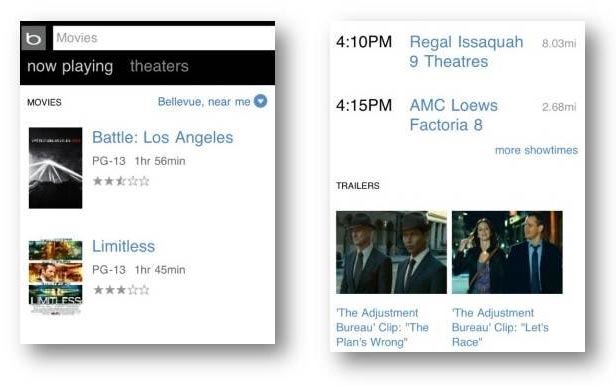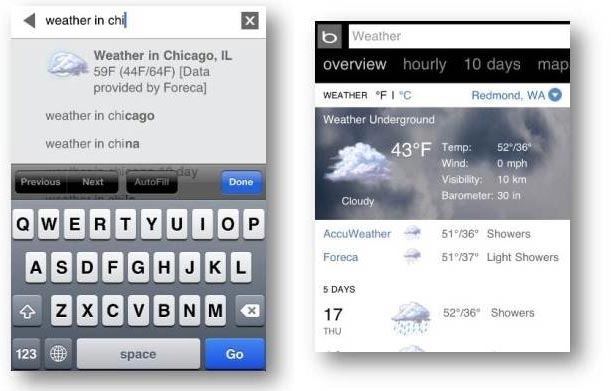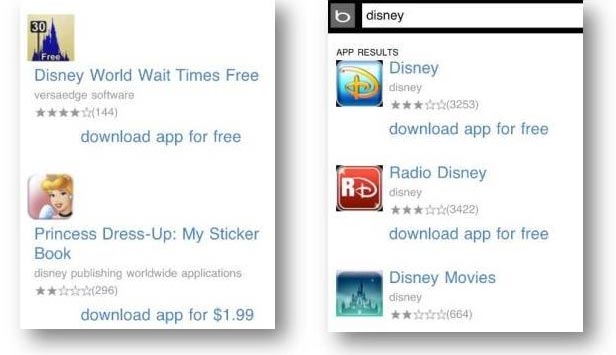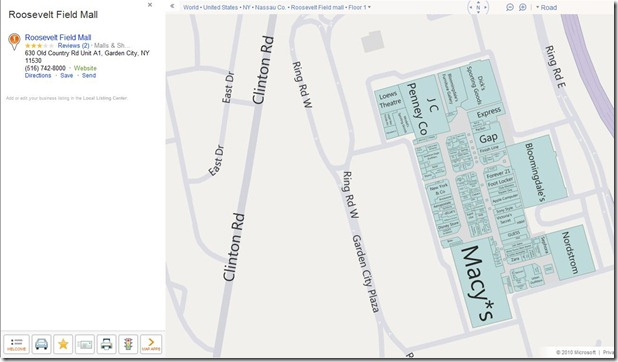Did you know there are small adjustments you can make to your use of Facebook’s Like buttons/social plugins that can have an incredible impact on your traffic?
Facebook can provide a level of engagement between businesses and consumers that you simply didn’t see much before it was around. Naturally, as a result, Facebook has proven to be an indispensable marketing tool and driver of website traffic. Granted, the content has to be compelling, but you already know that.
Is Facebook one of your main sources of traffic? Let us know.
Getting Traffic from Facebook
Danny Sullivan posted a slew of Facebook Like button/social plugin stats that came directly from Facebook itself. Here are a few of the stands-outs:
– The average media site integrated with Facebook has seen a 300% increase in referral traffic.
– Users coming to the NHL.com from Facebook spend 85% more time, read 90% more articles and watch 85% more videos than a non-connected user.
– ABCNews.com, Washington Post and The Huffington Post are said to have more than doubled their referral traffic from Facebook since adding social plugins.
– Levi’s saw a 40 times increase in referral traffic from Facebook after implementing the Like button in April 2010 and has maintained those levels since.
– Outdoor sporting goods retailer Giantnerd.com saw a 100% increase revenue from Facebook within two weeks of adding the Like button.
– American Eagle added the Like button next to every product on their site and found Facebook referred visitors spent an average of 57% more money than non-Facebook referred visitors
According to what Facebook told Sullivan, Like buttons get 3 – 5 times more clicks if versions that show thumbnails of friends are used, they allow people to add comments, they appear at both the top and the bottom of content, and they appear near visual content like videos or graphics. He looks at a specific example with Metacafe, which originally had a Like button at the bottom of its videos, but after adding one to the top in addition to it, tripled its number of daily likes and doubled its amount of referral traffic from Facebook.
That’s a pretty huge impact from such a simple adjustment.
Sullivan also references the recent Buddy Media report we covered last month, looking at Facebook’s EdgeRank (the basis for the algorithm Facebook uses to determine what shows up in users’ News Feeds), and how to optimize your Facebook activity to get seen in the News Feed more often, which is obviously going to help with traffic. Buddy Media, which in case you’re not familiar with, is a company that’s built a business out of creating Facebook tools for businesses, and counts major brands like Target, Johnson & Johnson, and ABC among its clients.
In the report, they suggested brands do the following on their Facebook Pages to get in the News Feed more and boost their “EdgeRank”:
1. Ask questions
2. Post games and trivia
3. Interact with fan engagement
4. Incorporate wall sapplets (polls, coupons, etc.)
5. Incorporate relevant photos
6. Relate to current events
7. Incorporate videos
8. Post content for time-sensitive campaigns
9. Include links within posts
10. Be explicit in your posts
In terms of getting Facebook referrals, don’t forget about Facebook’s recently launched “send” button, which can drive really targeted traffic.

Facebook and Search
Clearly Facebook itself can be very powerful for driving traffic directly to your content, but it also has the potential to be pretty powerful indirectly through search. It looks like this will only increase as integration gets more mature.
Of course Bing has ramped up its integration of Facebook. It’s displaying Likes in search results, where applicable. It’s showing actual sites your friends have “liked” (not just individual pieces of content). “Likes” are influencing search rankings in Bing on a personalized basis (and this is a powerful way to crack into the personalized SERP, which is no easy SEO task). Bing is using Facebook data to show “well-liked content” from sites across the web. It’s showing Facebook posts from brands when the brand is searched for. It’s letting users have conversations about some results with Facebook friends (mainly in travel for the time being). Bing has a feature that lets users share shopping lists with friends.

Bing uses Facebook in other ways, and will continue to add even more. Bing Director Stefan Weitz said in an interview with Inside Facebook, “It’s more than just Likes now. We think of people as having characteristics and attributes, not just actions. Now we’re considering what other meta data can we use that people will give us access to so we can continue to personalize search.”
He says 80% of people delay making a purchase online until they can talk to a friend. I’m not entirely sure where he’s getting this information, but 80% is pretty high, and Facebook is the online destination where many, many people have the easiest access of the largest group of their true friends (and family).
“Core search stuff has been taken care of by intelligent organization,” Weitz said. “But how do people sort through all the links and make a decision? You do all the research, but at the last minute you walk away from the purchase process because you’re not convinced until you get a social recommendation.”
“Stuff that was previously in your brain is now in a format that machines can read. Friend connections are a new way of thinking about ranking search,” he said. “Meanwhile, humans are creating 5 billion gigabytes of data every two days, and machines are losing their ability to categorize it all. How can PageRank handle a Yfrog image? It probably doesn’t have a title, or caption, or anything else that could help index it. But if a friend Likes it, that’s important.”
Then there’s Google.
We’ve talked about Google’s lack of Facebook integration plenty of times, but that’s not to say Google doesn’t use Facebook data at all, and that a healthy Facebook presence can’t help you get more search referrals indirectly.
In a discussion with Eric Enge, SEO vet Rand Fishkin of SEOmoz said, “Google and Bing both have data deals with Facebook. The Facebook growth team, which is their marketing team, was at SEOmoz a couple of weeks ago and we were talking in-depth. There was NDA stuff I can’t go into, but one thing they noted, that is public, is that Google gets considerably less data about the social graph from Facebook than Bing does. However, they get more than what is just in the open graph API.”
The Open Graph API itself has some pretty valuable data at the personalized level. It would be very interesting to know more about that “NDA stuff”. Perhaps in time.
“When you talk about signals, I think Google is able to see deeper into the social graph via Facebook data than any of us can test on our own. Many people have concern around abuse,” said Fishkin. “For example, what if I get ten thousand random people to go Like my page. There are probably very good signals about the authenticity of social sharing that Google is able to get through Facebook, and Bing maybe even more so.”
While Google may have access to some amount of Facebook data, it is the lack of integration that really hurts it in the relevancy game. Even still, the data isn’t being totally ignored. You can actually look at your “social circle” in the Google Dashboard, and see the ways Google is connecting different people to you – depending on who your friends are, there is likely a fair amount of Facebook connections in the mix.
For example, Google lists Michael McDonald as one of my “Direct connections from your Google chat buddies and contacts”. It says it is getting his content from a few different sources, including Facebook – that’s because he has his Facebook connected to his Google Profile, and I am friends with him on Facebook. So, theoretically, if Google deems a search result for some query I enter to be relevant, and McDonald has interacted with that content through Facebook, it could show me that, and perhaps make me more likely to gravitate to that particular result, rather than another result on the page. The more Facebook interactions you can get, the better your chances of this happening with consumers would be.
Google also includes data from Facebook in its realtime search, which is available to users as a search option via the left-panel or sometimes, when Google deems it appropriate, as its own snippet in the regular web SERP.
If your content appears in Google News, it’s also possible that Facebook shares can help you get into the news snippets on the regular web SERPs when they appear. If you’ll notice that the stories appear here often display something like this “shared by 5+” That number appears to come from the same realtime search data, which includes Facebook. Theoretically, if you get more Facebook shares here, it can increase your chances of getting great SERP position. That’s shares from Facebook Pages, however, which is important to keep in mind.
“We treat links shared on Facebook fan pages the same as we treat tweeted links,” Google said late last year.
Then, you have the simple fact that Facebook Pages tend to rank pretty well for brand searches. There’s a good chance that any consumer looking to engage with your brand will look to do so via a Facebook Page, as it offers a clear line of communication. If they “like” the Page while they’re on it, you obviously have a direct line to them anytime you have an update to post (provided you’re able to find your way into their News Feed). That may or may not be a link back to your site.
It all starts with getting people to engage with your content and share it with their Facebook friends. Find compelling ways to get people to do this with the placement of buttons, and the promotion of your own Facebook presence. If you can do those two things effectively, you’ll be off to a good start. Then, it should simply be a matter of putting out stuff that people actually want to share and engage with.
What are some ways you keep people engaged with your content via Facebook? Share here.
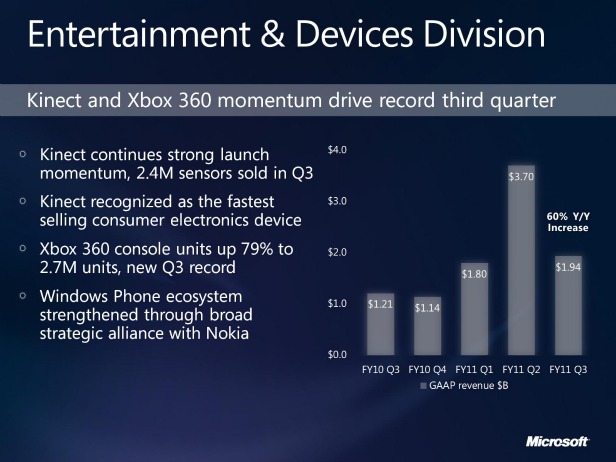












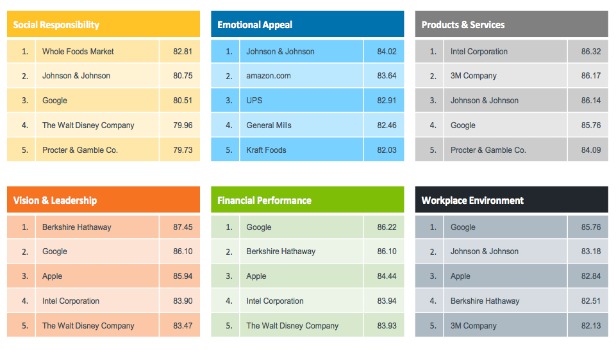

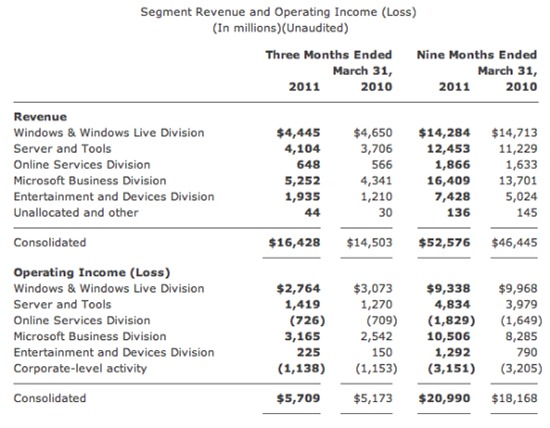



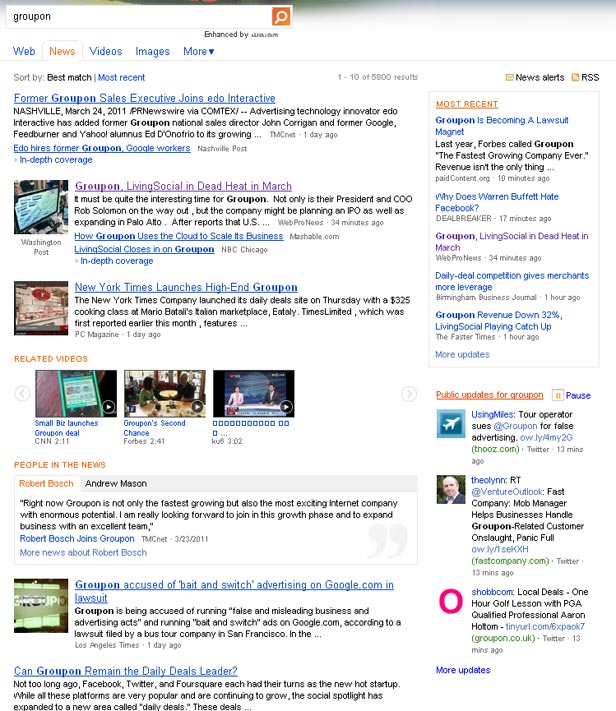
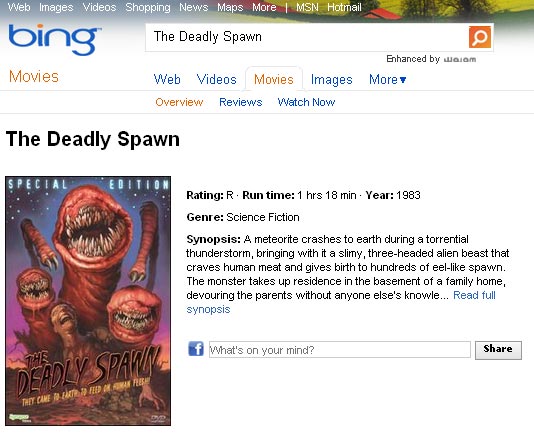 Bing has been finding more ways to integrate with Facebook – one area where Google continues to do very little. There is a lot of potential for
Bing has been finding more ways to integrate with Facebook – one area where Google continues to do very little. There is a lot of potential for 